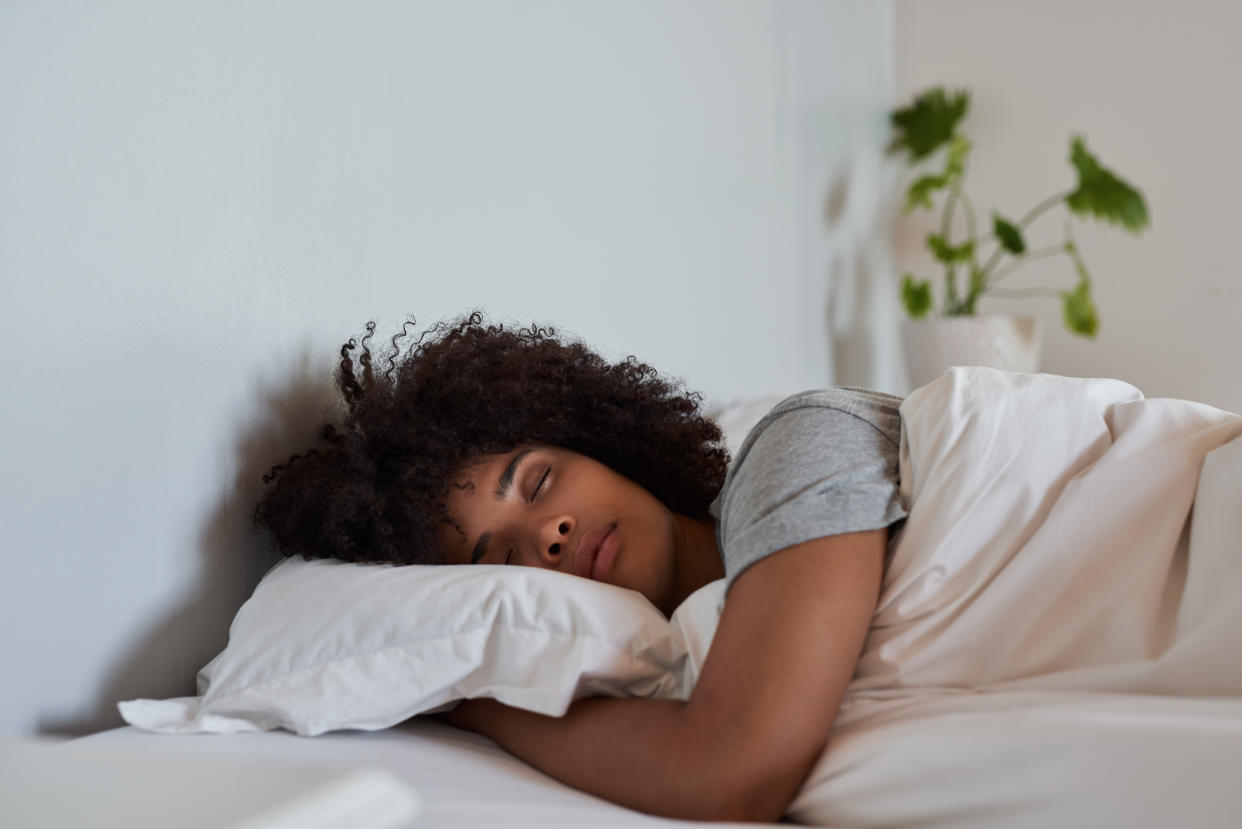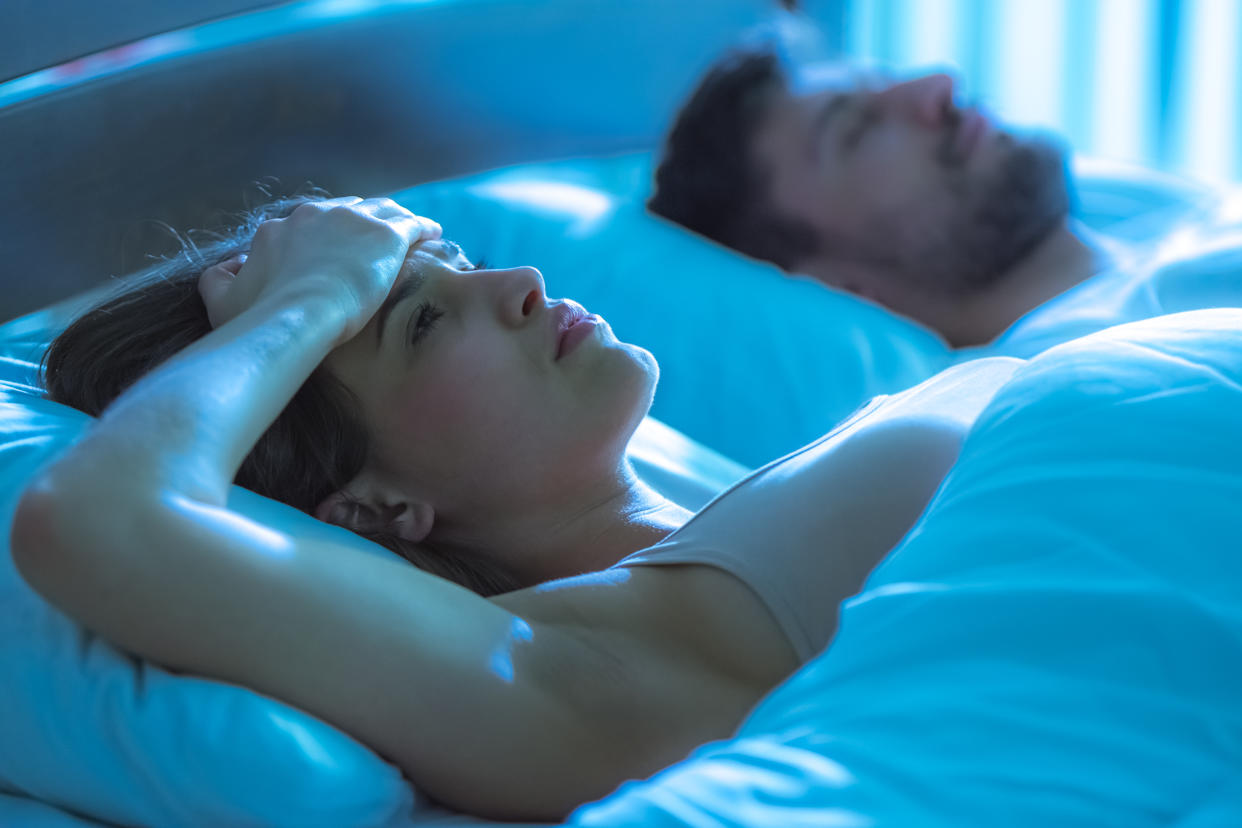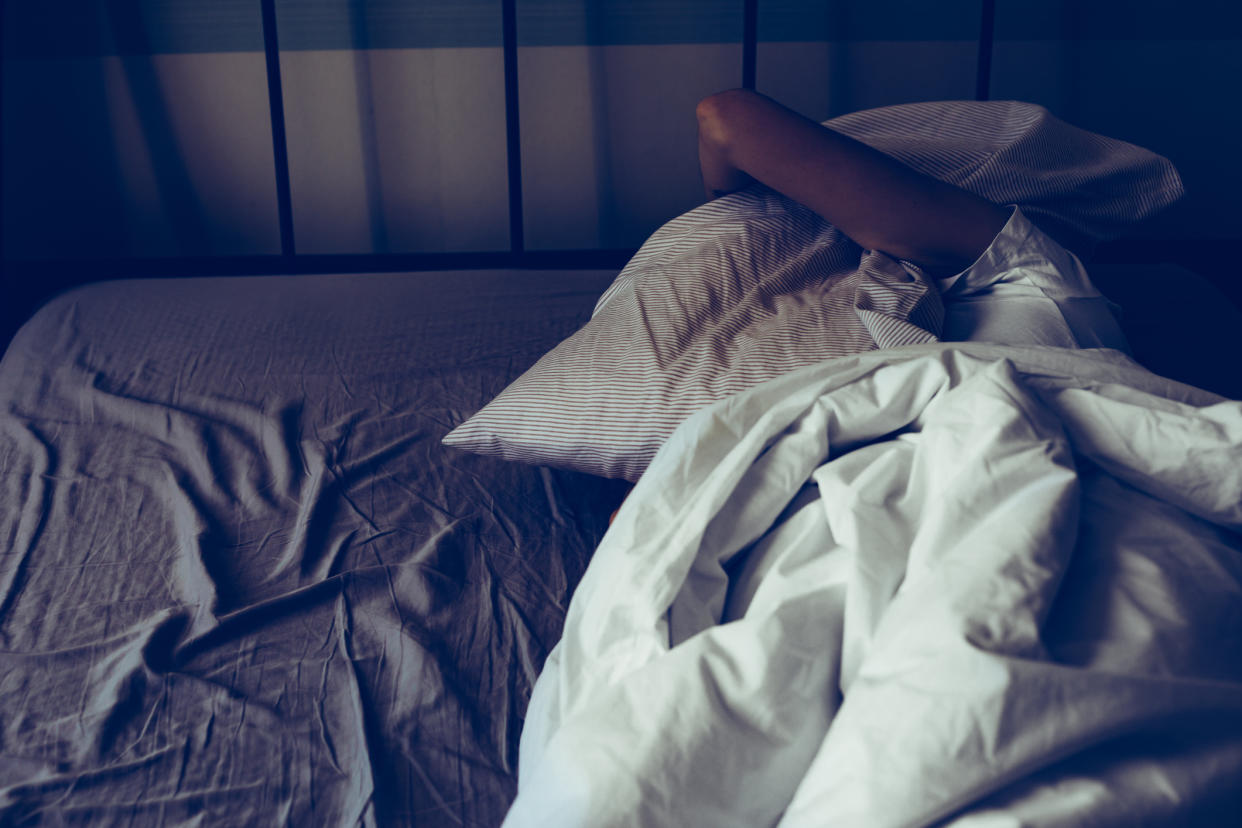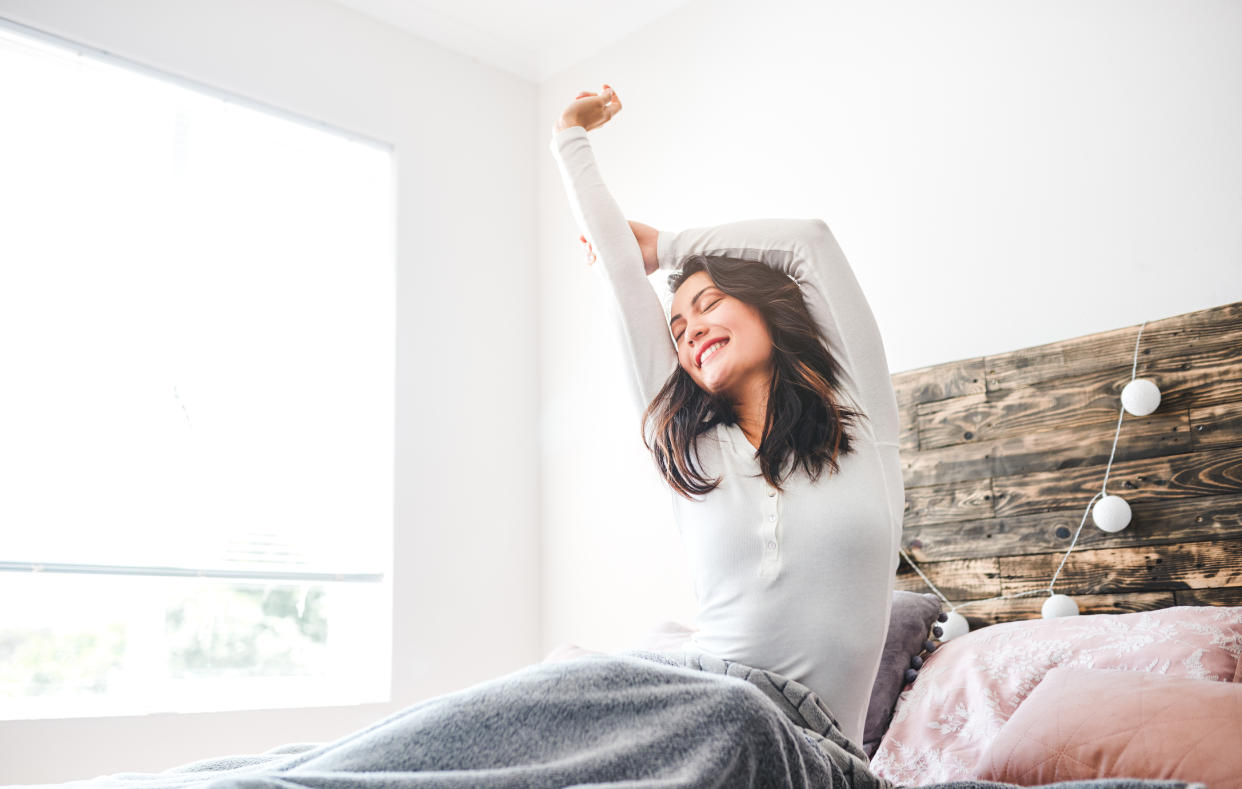The exact time you should go to bed, according to sleep experts

We all know the importance of getting a good night's sleep, but how much shuteye is enough and when should we hit the proverbial hay?
To mark World Sleep Day, which falls today, the snooze experts at Make My Blinds, have created a sleep calendar which has revealed the exact time you should be going to bed.
How much sleep should we be getting?
Turns out the required amount of sleep we need boils down to our age. For most of the population, a minimum 7 hours rest time is advised, whereas babies under 12 months should get between 12-16 hours of sleep every day.
Meanwhile, older adults, those aged 65 and older, need around 7-8 hours of snooze time each day.
As you go through three stages during sleep: light, deep, and REM sleep. Experts recommend an ideal 7 - 9 hours of sleep and between 4 - 6 sleep cycles for adults.
Interestingly, they also advise that women need 20 minutes more sleep than men.
Based on the body’s natural sleep cycles, your age and the sleep calculator is designed to help find optimal times to sleep and wake, allowing some leeway for the time needed to fall asleep.

What impact does not getting enough have on health?
Of course not getting enough sleep can have an impact on your overall health, with low levels of ZZZs linked to poor mental health, a lack of concentration, low sex drive and other tricky consequences.
Getting the most out of your rest isn’t just about having an early night, however, a good night’s sleep depends on setting your alarm for the right time, too.
While it's tempting to try to bank some extra hours of sleep, excessive snoozing can also pose health risks and leave you feeling tired the next day.
Oversleeping has also been linked to detrimental effects on health, including increased inflammation in the body, weakened immune function, and a higher risk of chronic diseases.
There are many factors which can contribute to poor sleep quality, including stress and anxiety, money worries, work-related issues, a bad diet, not exercising regularly and having an irregular sleep pattern.
Are naps a good idea?
For some of us, feeling the urge to nap after lunch is natural and linked to the body's circadian rhythm. This internal clock follows a 24-hour cycle, with two peak periods of sleepiness: the greatest at night and a secondary one in the early afternoon.
If you are an afternoon napper, the optimal nap length is around 20 minutes, avoiding deep sleep to prevent grogginess when you wake up, as waking from deep sleep can exacerbate sleepiness. A short nap, therefore, can serve as an opportunity to refresh and regain energy levels.

The importance of going to bed at the right time
Colette Toman, interior stylist at Make My Blinds says creating an environment which will help improve your sleep quality is of vital importance.
"Getting the correct amount of sleep is vital for our physical and mental health but for those who are struggling with sleep deprivation, it can be hard to understand what contributing factors may be to blame and making the issue worse," she explains.
"For many of us, we’re aware that certain lifestyle habits such as a bad diet and using technology before bed can impact our sleep quality, as well as stress and money worries, however, the environment you’re sleeping in can also influence how good or bad your sleep pattern is.
Toman says that as lighter mornings are almost upon us, the amount of natural light entering your bedroom could disrupt your sleep quality, so it’s important to make the room as dark as possible, for as long as possible.
"As well as this, making sure you’re sleeping in a neat and tidy space is also a great way to relax the body and mind which in turn, will benefit your quality of sleep," she adds.
"Finally, your bedroom should be a place of relaxation and technology can often make us more alert and increase our chances of having a bad night’s sleep. With this in mind, consider removing any distractions from your room or make sure they’re switched off long before it’s time for bed and instead, opt for a book or practise mindfulness."

How to fall asleep faster and stay asleep for longer
The experts at Make My Blinds have put together some other sleep tricks to try.
Practice good sleep habits
Sticking to a good routine helps for a better night’s sleep. This includes a set time to wind down and put away anything that could keep you up. Ensure you have a consistent time to go to bed and get up, even at weekends.
Try Mindfulness
Stress, worry, and anxiety all impact the quality of your sleep. Fortunately, there are a few things you can do to put your mind at rest pre-bed including writing your worries down in a journal.
If you lie awake worrying about tomorrow, add writing a to-do list for the next day to your sleep routine. Breaking worries down into little tasks can be a helpful way to manage your anxiety, giving you a better night’s sleep.
Don’t force sleep
If you’re struggling to sleep, don’t stress, as this can keep you up. If you’re tired and enjoying the feeling of rest, this will help you sleep naturally.
If you can’t get to sleep, get up and find a comfy place to unwind with a book or listen to some quiet music. Only go back to bed when you feel sleepy.
Improve your diet and exercise routine
Poor diet and lack of exercise can stop you from getting a good night’s sleep. So try to make some improvements in your daily routine. Avoid stimulants like caffeine or nicotine for at least an hour before bed, as they will make it harder for you to drop off. Alcohol might make it easier to get to sleep but can disrupt your sleep cycle later on.
Regular exercise can tire you out and help you relax. But avoid doing anything too strenuous around 90 minutes before bed. This can raise your stress levels, making it harder to get to sleep.
Sleep: Read more
The five signs you're not getting enough sleep (Yahoo Life UK, 6-min read)
Lack of sleep can actually lead to anxiety and depression (Yahoo Life UK, 3-min read)
How much sleep you need at different ages, from childhood to the later years (Yahoo Life UK, 7-min read)


